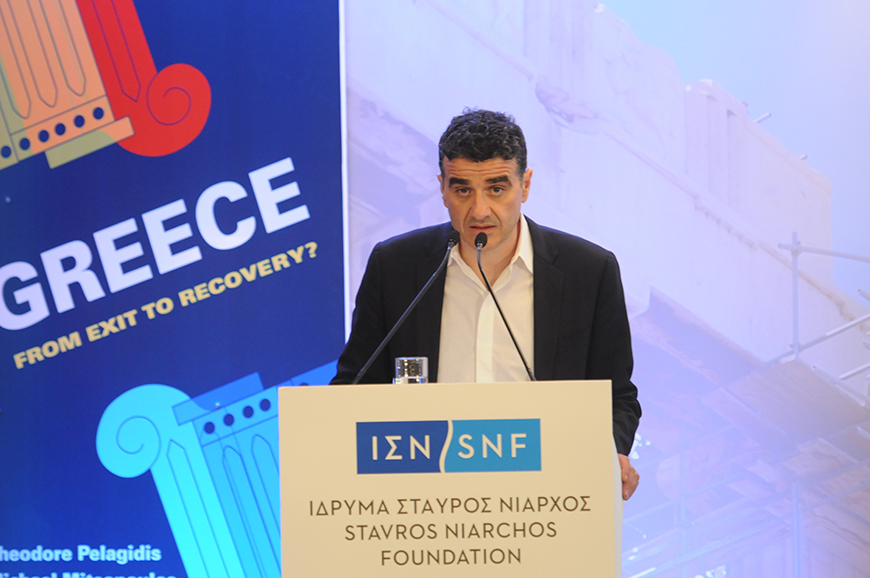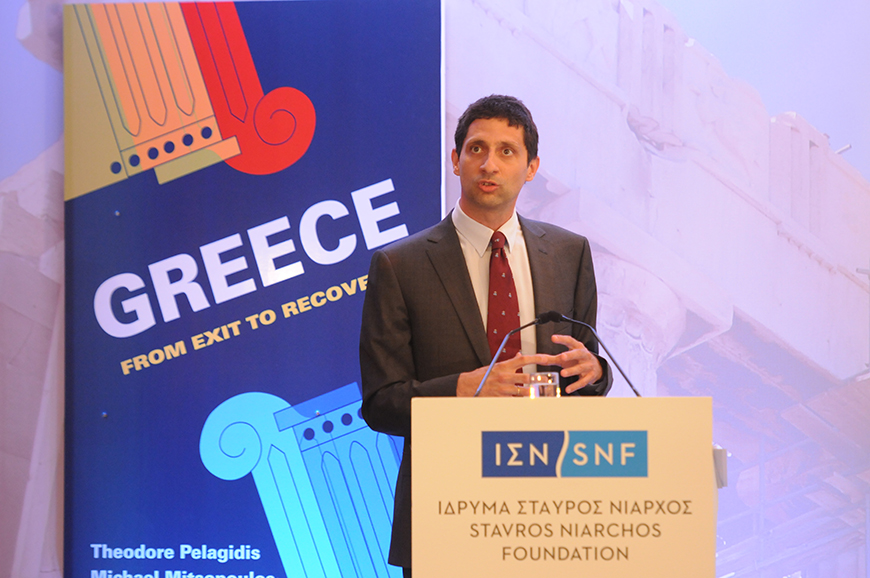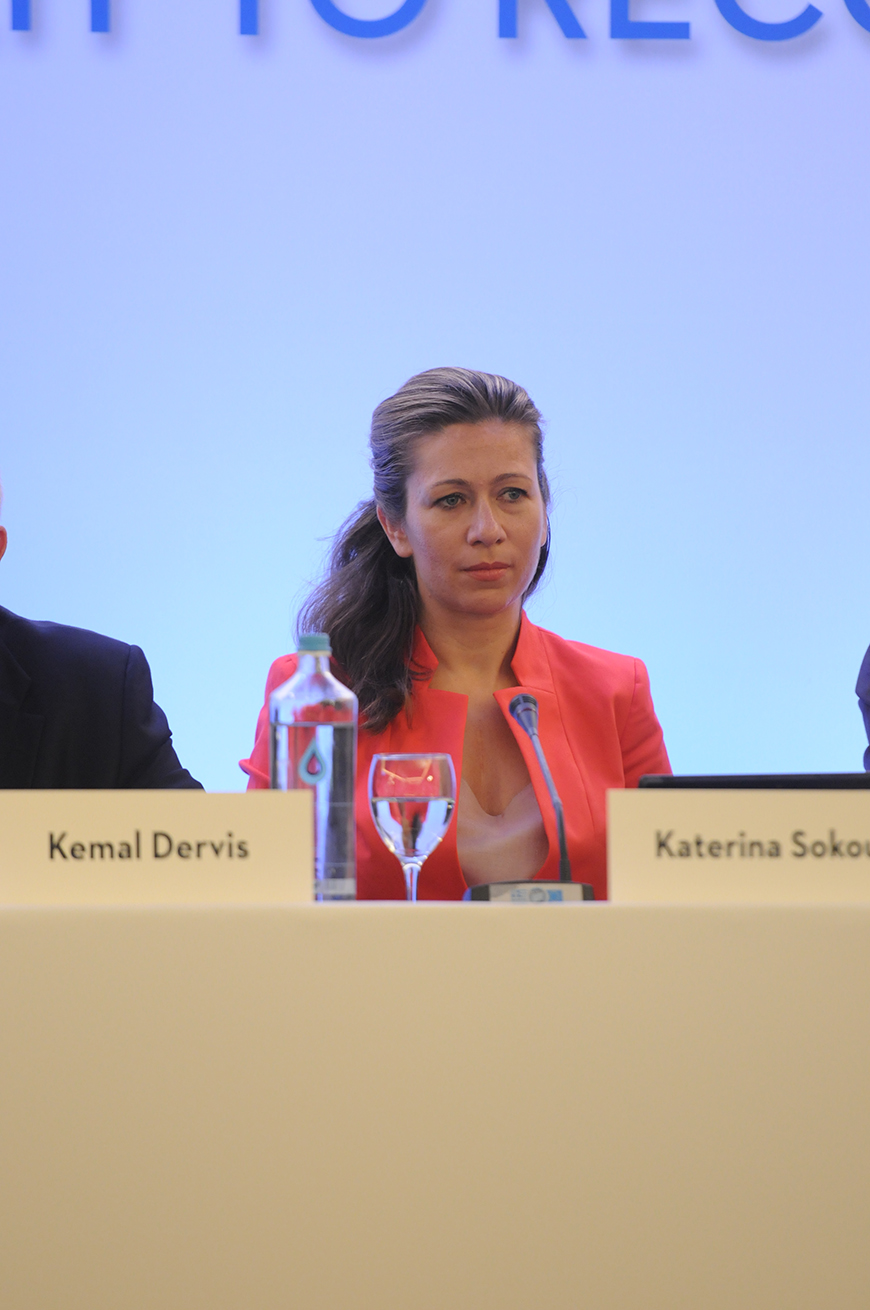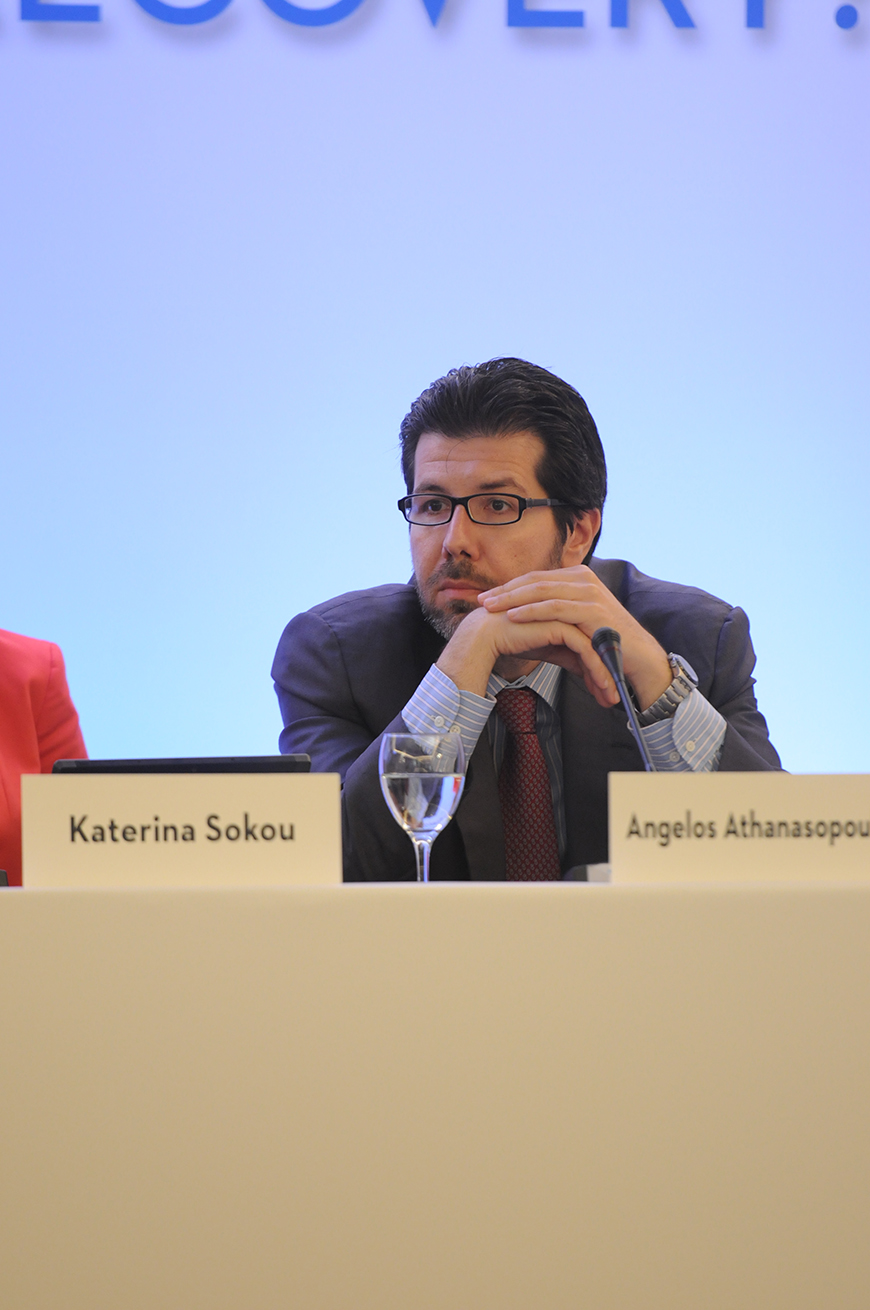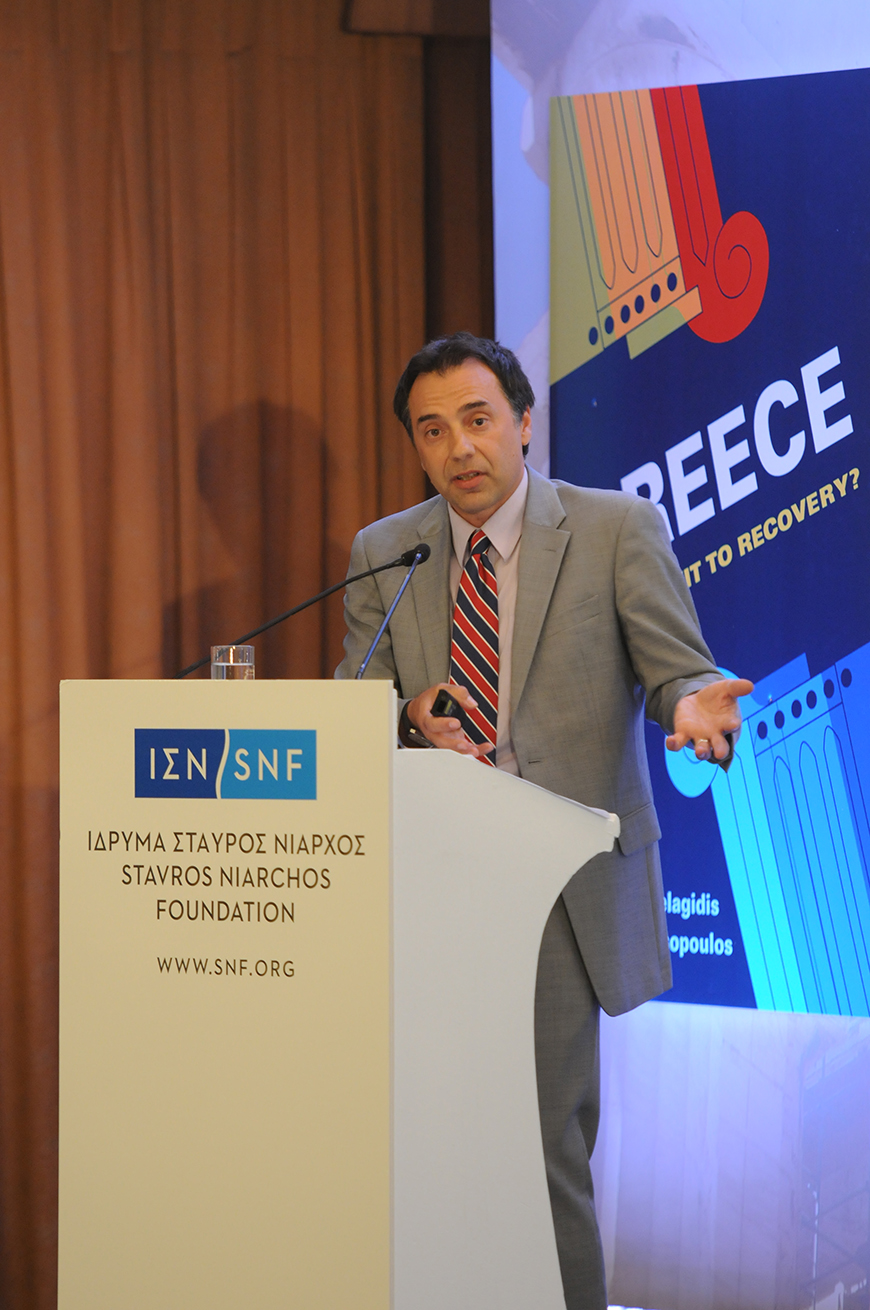The Brookings Institution completes the European Growth Project with the support of the SNF
The roundtable discussion included among others: Kemal Derviș, Vice President and Director, Brookings Institution, and Former Minister of Economic Affairs, Turkey; Jacques Mistral, Nonresident Senior Fellow, Brookings Institution, and Special Adviser, Institut Francais des Relations Internationales; Josep Borrell, Former Spanish Minister; Former President, European University Institute, and Jean Monnet Chair on European Economics, Universidad Complutense of Madrid; Anke Hassel, Professor, Hertie School of Governance, Berlin; Eleni Dendrinou-Louri, Deputy Governor, Bank of Greece; Yannis Stournaras, Governor, Central Bank of Greece, and Former Minister of Finance, Greece; William Antholis, Managing Director & Senior Fellow, Brookings Institution; Friedrich Heinemann, Head, Corporate Taxation and Public Finance, Centre for European Economic Research (ZEW), Mannheim; Anna Diamantopoulou, President of the Diktio Network for Reform in Greece and Europe, and Former EU Commissioner; and Andreas Dracopoulos, Co-President, Stavros Niarchos Foundation.
The European Growth Project is aimed at examining the unfolding consequences of the euro crisis by focusing on the most affected countries -(Greece, Italy and Spain), while examining a number of issues in relation to the crisis that were of great concern to Germany and France.
The research work has culminated in the publication of two manuscripts: Greece: From Exit to Recovery? by Theodore Pelagidis (Brookings Nonresident Senior Fellow) and Michael Mitsopoulos, and Europe’s Crisis, Europe’s Future, a volume of essays/case studies on wider economic issues and reform in the Eurozone, as well as on the financial sector and social policies.
As Andreas Dracopoulos, the Foundation’s Co-President, mentioned: “Pelagidis’s and Mistopoulos’s book is not simply a description and a straightforward analysis of the crisis. Greece: From Exit to Recovery? focuses on recognizing the inherent weaknesses and problems that existed and defined Greece’s accession to the Eurozone, searches for and points out structural deficiencies in the current adjustment and austerity measurements, and provides suggestions on ways to bring back competitiveness to the Greek economy. In doing so, the authors have written an astute and original analysis, which hopefully will contribute to the ongoing public debate on Greece and the current crisis.”
